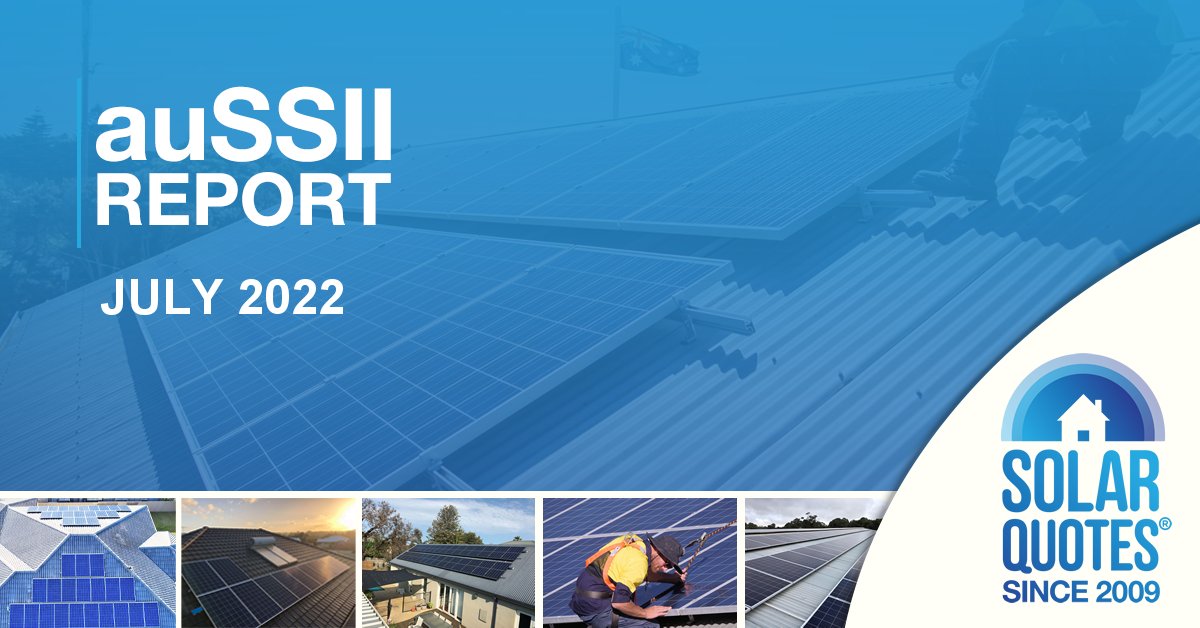
The rush on home solar really ramped up in June as Australians sought refuge from looming electricity price increases. Find out what they were wanting in a rooftop solar power system, and the proportion interested in batteries.
Solar Power System Capacity
Presented with capacity ranges of 3-5 kW, 5-10 kW, 10-15 kW, 15-20 kW, 20+ kW and “Fill Roof” on the SolarQuotes quote form and an option was selected, the most popular range was 5 – 10kW in June at 77%, down on May’s 79%. A little over 12% selected the “Fill Roof” option in June, up a little on May. The popularity of the “Fill Roof” category has been steadily growing for some time.
If you’re uncertain what size system you should install on your home, read SQ Founder Finn’s advice on how much solar power you need.
Purchase Timeframe Indication
In June’s auSSII report we noted there could be a marked increase last month in the proportion of Australians who wanted to install solar right now due to electricity price hikes. That occurred, with a whopping 26% expressing a desire to purchase a system straight away, compared to a tad over 22% in May. Around 31% indicated a purchase within 4 weeks.
The spike in PV popularity means solar installation timeframes may be longer for a while as installers work through the backlog of jobs.
Quality And Price
Again in June, 12% of solar shoppers were after a top-notch (i.e., most expensive) system, 81% a package offering a good balance of price and quality, and 7% a good budget system.
Australian Solar Price Index
If you’re curious about what Australians were paying for systems very recently and in the past, check out the SolarQuotes Australian Solar Price Index. We’ll be publishing a special report on June’s pricing results here on the blog towards the end of this month when we have more data to work with.
Microinverters And Optimisers
Microinverters and optimisers are MLPE (Module Level Power Electronics), aka Panel Level Optimisation (PLO) devices. These devices will add around 20 – 30% on to the cost of a system, but offer benefits including increased system design flexibility, panel level monitoring and advanced safety features.
During June, close to 18% of quote enquiries expressed an interest in learning more about MLPE options, up just a touch on May’s 17%.
Advanced System Monitoring Option
To gain maximum benefit from a solar power system, it’s important to not only know how much electricity a system is generating, but also how that energy (and mains grid supplied power) is being used in the home. Advanced solar monitoring provides detailed consumption information, plus better alerting when something is amiss.
Advanced monitoring is an option well-worth considering, and many did last month. 36% registered an interest in the add-on, up on May’s 35%.
Battery Ready Solar
While just about every solar power system ever installed is “battery-ready” to some degree through AC or DC coupling, we ask a question on the quote form about home energy storage intention for the future to help prospective installers with system design.
5.3% of quote requests in June indicated an interest in a battery-ready system, not much different to May or any other month in the past for that matter.
Concurrent Solar + Battery Install
We see more fluctuation with regard to having a home battery installed with a solar system concurrently, as current events such as electricity price rises can drive interest. In June, just under 22% of quote requests were keen on having both installed at the same time; up significantly on May’s 18% and 20% in April.
If you’re thinking about home batteries, there’s a lot to consider. Finn’s “101” battery guides to understanding, buying and owning a solar battery are well worth reading before taking the plunge.
Primary Use For Battery
These potential battery owners saw the main use as being :
- Backup: 5% (7% in May)
- Minimising mains grid electricity consumption: 33% (37% in May)
- Both purposes: 62% ( 56% in May)
Power Bills Pre-Solar Panels
Higher power bills from electricity price rises are yet to be issued, so there wasn’t a huge deal of movement here – but that will change soon as the calendar flipping over to July heralded the arrival of those price hikes.
45% of Australians reported paying in the range of an average $500 to $1,000 a quarter in June 2022, same as May. And similar to April was the proportion of those paying more than $1,000 a quarter – just over 10%.
About The July 2022 auSSII Report
Thousands of Australians use SQ’s free service each month to get up to 3 quotes from solar installers Finn trusts – and the report above is based on the information provided when quotes are requested.
Quality Sales Leads For Top Installers
Leads from SolarQuotes are a cut above the rest. Find out why and what it takes to starting benefiting from SQ’s solar sales leads.
Reproducing auSSII Content
Reproducing information from auSSII reports in your own publication is permitted, but please ensure you attribute SolarQuotes as the source and link to the page the content is drawn from.

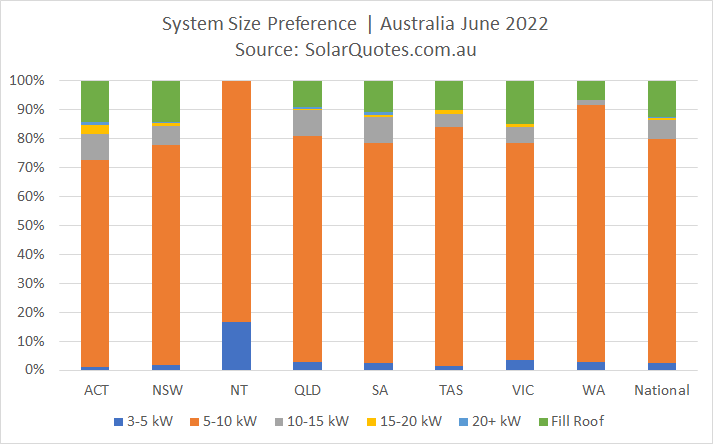
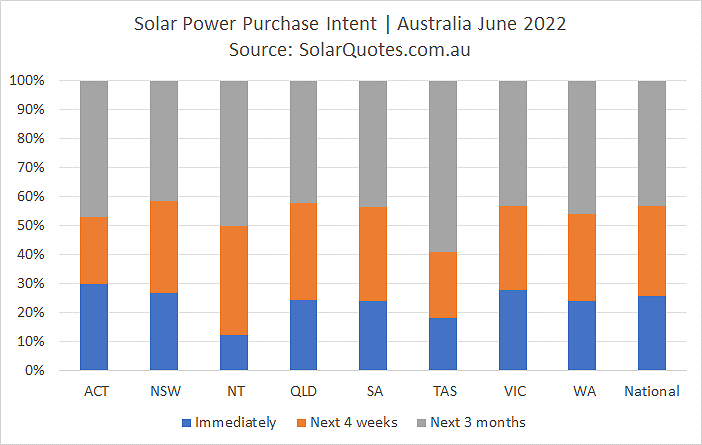
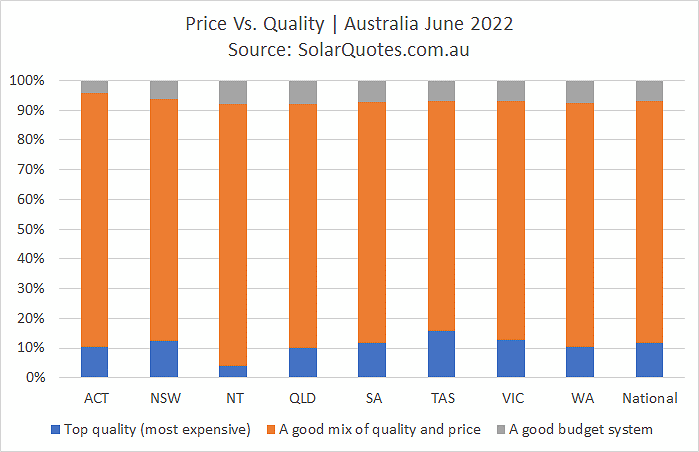
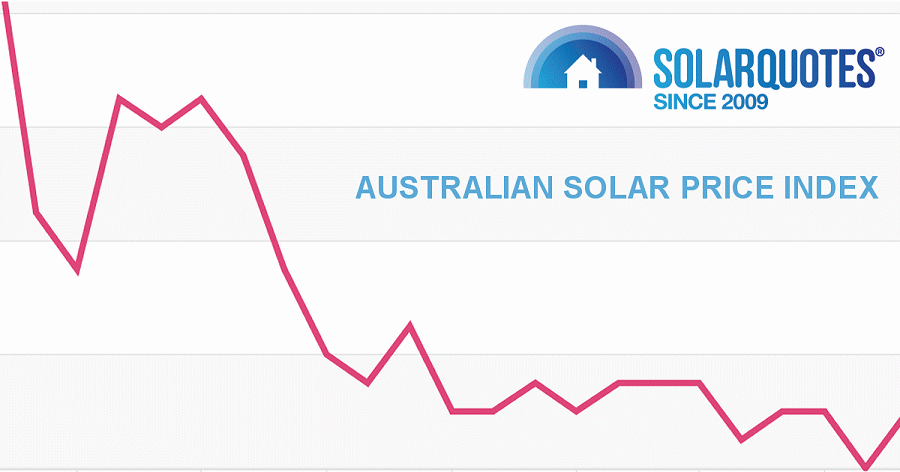
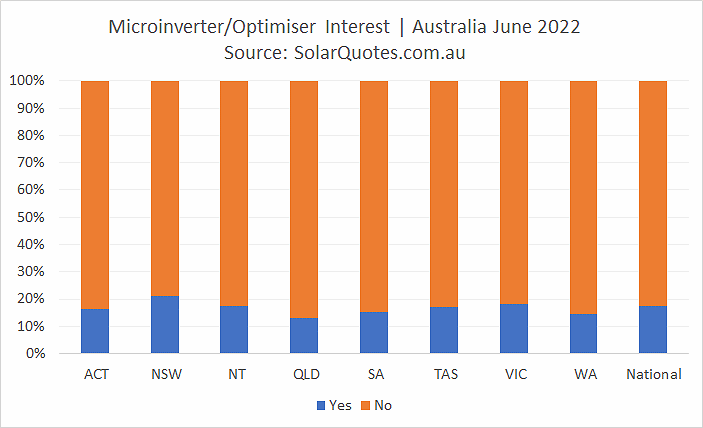
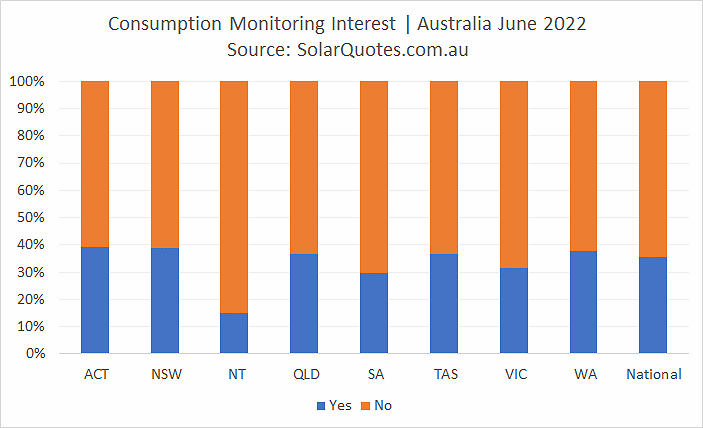
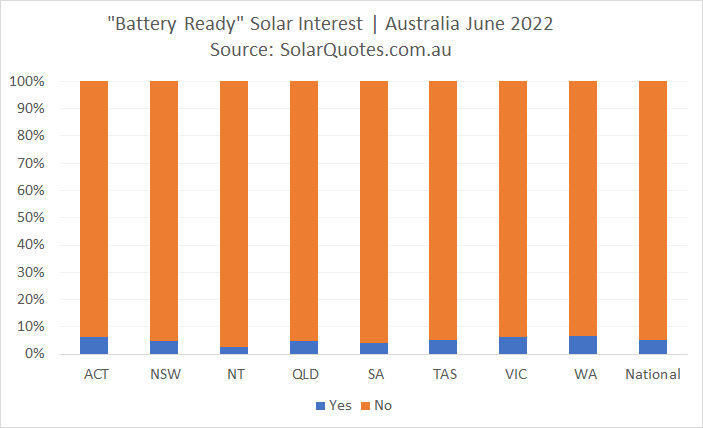
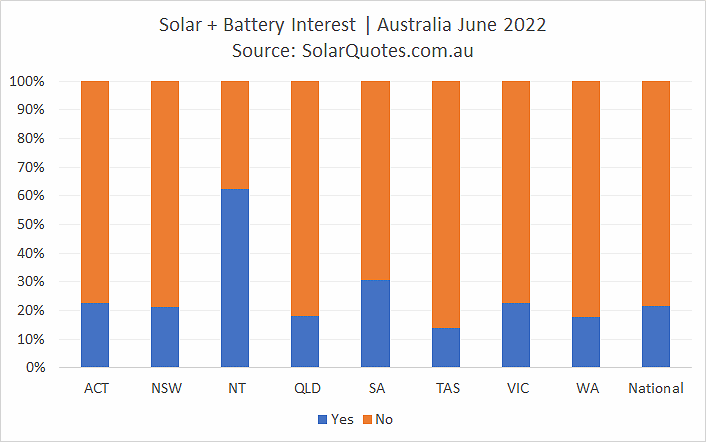
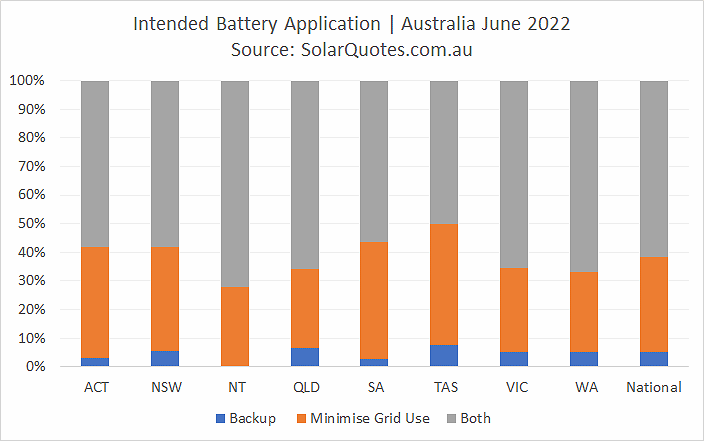
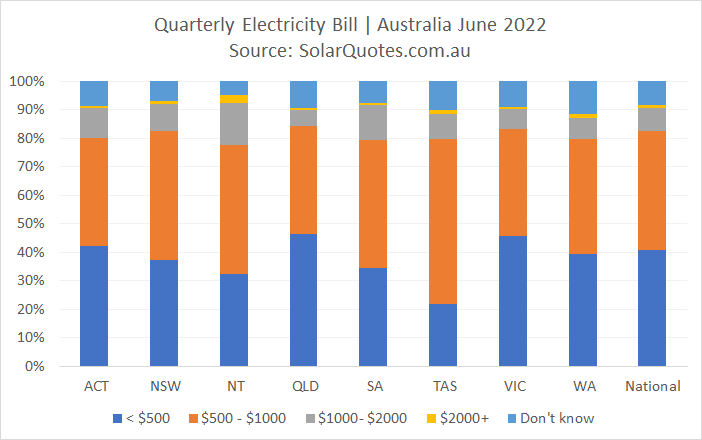
 RSS - Posts
RSS - Posts



Michael,
John Weeks here.
Can you do a F.I.T? – feed-in Tarif comparison throughout Australia as of June / July 2022 and what it means for dedicated ” Green ” energy users with Solar power generation on their roofs going forward –
Because of the debacle of Government Policies since 1999 but also the money grab of Whole- salers and of course the ‘ middle men’ – the retailers also! are there any agencies regulating the ” Money Grab” of wholesalers and retailers, placing retail users of Electricity to ransom – in this climate of closing down coal-powered and L.N.G. power stations
Yours Sincerely,
J.Weeks